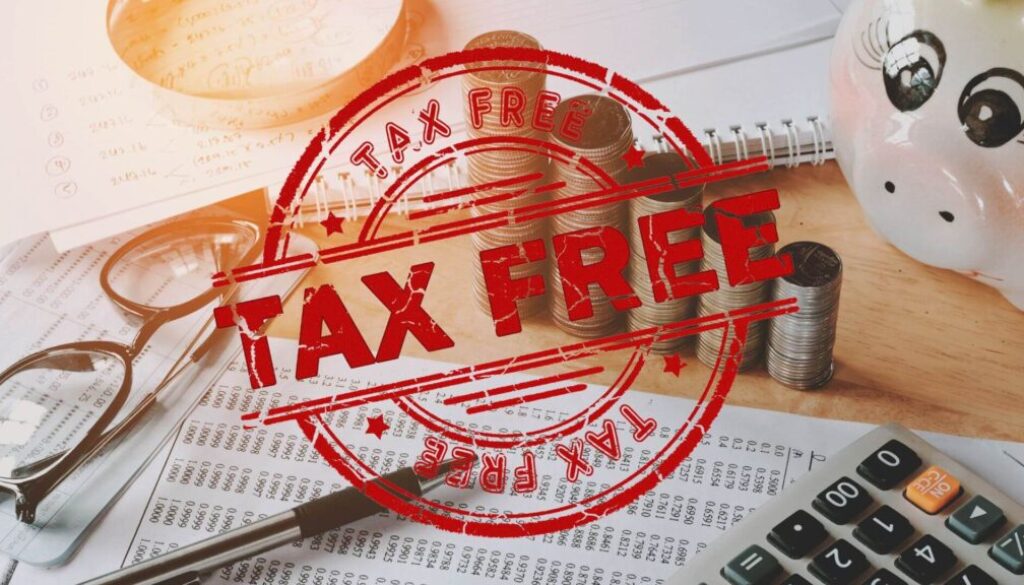Investing Beyond Taxes: Tax-Free Investment Options
In the context of financial planning, smart investors continue to prioritize both growth and tax efficiency. Individuals seek avenues that not only promote wealth accumulation but also reduce the impact of taxation in order to secure their financial future. This delicate balance has given rise to a variety of tax-free investment options that promise untaxed earnings, allowing investors to reap the benefits of compounding without the burden of excessive taxation. In the following sections, we’ll look at some of the tax-free investment vehicles that can help you build a financially sound and tax-savvy portfolio.
- Retirement Accounts
- Roth Individual Retirement Accounts (IRAs): A Roth IRA is a type of individual retirement account (IRA) that enables account holders to make contributions with money that has already been subject to taxes. Qualified withdrawals, which might include earnings, are exempt from taxation. Still, there is a cap on the amount that can be contributed and restrictions on income.
- Roth 401(k) or Roth 403(b): Similarly to the Roth IRA, these retirement accounts accept post-tax contributions from workers. In retirement, you can withdraw your earnings tax-free, provided they qualify as a withdrawal. Some companies may include these options in their retirement packages.
To what extent are you ready for retirement? Read our FREE white paper to find out more.
- Roth Individual Retirement Accounts (IRAs): A Roth IRA is a type of individual retirement account (IRA) that enables account holders to make contributions with money that has already been subject to taxes. Qualified withdrawals, which might include earnings, are exempt from taxation. Still, there is a cap on the amount that can be contributed and restrictions on income.
- Municipal bonds, Also referred to as “munis,” are debt instruments that municipalities issue to finance public works projects like infrastructure development and school construction. You are essentially giving the government a loan when you purchase a municipal bond. You benefit because the bond pays interest at a predetermined rate for the duration of the bond. Interest income from these bonds is generally exempt from federal income tax and, in some cases, state and local taxes, particularly if you invest in bonds issued in your home state.
- HSAs or Health Savings Accounts: With a high-deductible health insurance plan, you can put money away tax-free in an HSA. The contributions are deductible for federal income tax purposes, and any money withdrawn to pay for qualified medical expenses is exempt from federal income tax. Individuals can use HSAs to put money away for future and current medical costs.
- College Savings Plans
- 529 College Saving Plan: A 529 plan is a type of tax-advantaged savings account specifically designed to help people put money away for their children’s or grandchildren’s education. Withdrawals made to cover qualified educational costs like tuition, fees, and living expenses are not taxed while earnings continue to grow tax-free.
- Coverdell ESA: Coverdell ESAs are tax-advantaged savings accounts for higher education that function similarly to 529 plans. While your contributions aren’t tax deductible, your earnings grow tax-free, and any withdrawals used to pay for qualified higher education costs aren’t taxed either.
When compared to the 529 plan, the Coverdell Education Savings Account provides greater investment freedom, potentially lower costs, and tax-free treatment for a broader range of K-12 expenses in addition to college costs.
- 529 College Saving Plan: A 529 plan is a type of tax-advantaged savings account specifically designed to help people put money away for their children’s or grandchildren’s education. Withdrawals made to cover qualified educational costs like tuition, fees, and living expenses are not taxed while earnings continue to grow tax-free.
In conclusion
Investing in a tax-efficient manner can pay off in big ways down the road, especially in retirement. You can make the most of your money at the most crucial times if you pay as little in taxes as possible. Whether you work with a financial advisor or manage your own investments, it is critical to consistently factor taxes into your decision-making process and avoid common financial planning pitfalls.
Want to talk to a solid financial advisor?
Consider Markowski Investments for comprehensive tax-efficient investing advice and to explore strategies that align with your financial goals. Markowski Investments Advisors provide valuable insights and resources to assist you in making informed investment decisions while minimizing tax liabilities. Remember that a well-informed tax strategy can significantly improve your long-term financial success.
Avail of the FREE consultation today!




